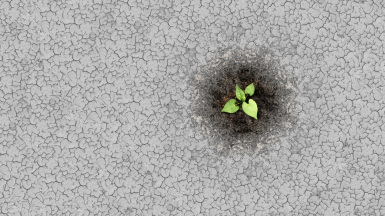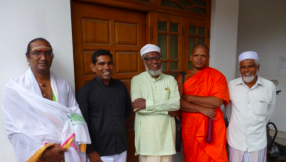
Pope Francis' recent visit to Asia and Oceania, from 2 to 13 September, has provided a significant platform for world leaders to call for urgent action on climate change.
As the pope journeyed through countries already feeling the severe impacts of environmental crises, local leaders highlighted the need for a global commitment to address these issues.
In Papua New Guinea, one of the nations most vulnerable to climate change, Governor General Bob Dadae delivered an emotional plea during the pope's visit on 7th September.
"Your Holiness, climate change is real," Dadae stated. "The rise in sea levels is affecting the livelihoods of our people in the remote islands of Papua New Guinea and across the Pacific."
Dadae highlighted the existential threat his country faces, with extreme weather events, landslides, and flooding placing thousands of lives at risk.
"The experience across the Pacific is that islands are sinking, people are affected and displaced, while the world continues to talk," he lamented.
"We want the world to know that there is no more time for discussion. What the world needs is commitment for action."
Dadae's words served both as a stark warning and a desperate call for immediate international action. He expressed gratitude for the work of Catholic missionaries and other faith-based organisations in supporting communities affected by climate change, but stressed that without broader global commitments, the situation would only worsen.
He urged, "There is no more time for discussion. What the world needs is commitment for action."
A week later, in Singapore, a similar call for action came from President Tharman Shanmugaratnam during a meeting with the pope on 7 September.
"We are seeing accelerating climate change, making the world less safe for humanity," Shanmugaratnam told Pope Francis. He applauded the pope's leadership, especially his 2015 encyclical Laudato Si' (Praised Be), which urged the world to protect the environment.
Shanmugaratnam also emphasised the importance of the upcoming COP28 climate summit as a pivotal moment for the international community to intensify its efforts. "Your Holiness' support for the Paris Agreement and your call for climate action have inspired many," he said. "This message is all the more relevant as the world struggles to meet growing energy demand while achieving a transition to clean energy."
In response, Pope Francis recognised Singapore's potential to lead in climate solutions. "We should not underestimate the impact that a small nation like Singapore can have in this regard," the pope remarked. He stressed that Singapore's access to capital, technology, and talent could drive significant advancements in addressing the climate crisis.
The threat of climate change was a recurring theme throughout Pope Francis' trip, which began in Jakarta, Indonesia, a city battling rising sea levels. With an estimated 40% of Jakarta already below sea level, the government is preparing to relocate the capital to escape worsening floods.
During his visit, Pope Francis joined Southeast Asia's grand imam in issuing a joint declaration calling for religious leaders to unite in the fight against climate change. "This ongoing environmental crisis has become an obstacle to the harmonious coexistence of peoples," the declaration read.
Although Pope Francis had initially planned to address the COP28 climate conference in Dubai later this year, respiratory issues have forced him to cancel his appearance. Instead, Cardinal Pietro Parolin, the Vatican's Secretary of State, will deliver the pope's message in his absence.













